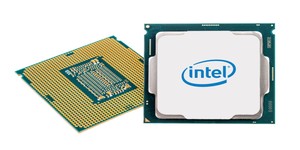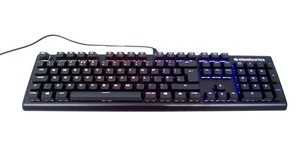
In a sign that the wheels of justice do indeed turn ever so slowly, the Court of Justice of the European Union (CURIA) has set aside a 2009 judgement by the General Court to fine Intel a record €1.06 billion (around £970 million) for anticompetitive practices, referring the case back to the General Court once more.
The European Commission on Competition had investigated Intel following complaints that the company was abusing its dominant position in the European CPU market in a number of ways: According to the complaints Intel had been granting rebates to the big four computer manufacturers - Dell, Lenovo, HP, and NEC - in exchange for agreements to use Intel part exclusively or near-exclusively and had offered performance payments to Media-Saturn in exchange for the company selling only Intel-based PCs. The effect of these practices, the Commission found, was to lock competitors - most notably AMD - out of the x86 CPU market. In 2009 the Commission took its findings to the General Court, which ruled Intel guilty and ordered it to pay a record-breaking fine of €1.06 billion (around £970 million) - a ruling Intel, entirely unsurprisingly, vowed to appeal.
Eight years later Intel has won a major battle in the process: The Court of Justice of the European Union has set aside the General Court's judgement, ordering that the General Court must review its findings in light of arguments put forward by Intel claiming that the Court had failed to examine the rebates in question 'in light of all the circumstances of the case' by failing to fully analyse the case and apply what is known as an 'as efficient competitor test' (AEC test) - a decision which Intel has argued resulted in an error in law.
While CURIA's ruling potentially opens the door for Intel to have the fine reduced or even written off in its entirety the company also had other arguments fully dismissed: Intel's claims that the EU Commission lacked territorial jurisdiction to fine a US company and allegations of procedural irregularities that affected the company's rights of defence were both rejected by CURIA.
'CURIA's decision to order the General Court to examine Intel's arguments on the Commission's assessment of the as efficient competitor (AEC) test is to be welcomed. If the Commission includes in its decision 200 pages of economic assessment to bolster its findings, it must be held accountable for any errors therein,' claims Georg Berrisch, partner at legal firm Baker Botts' Brussels office, of the ruling. 'Intel now has to continue its court battle, and considering the nature and complexity of its challenge of the AEC test I would be surprised if a judgement came out before the 10th anniversary of the lodging of Intel's appeal.'

MSI MPG Velox 100R Chassis Review
October 14 2021 | 15:04








Want to comment? Please log in.